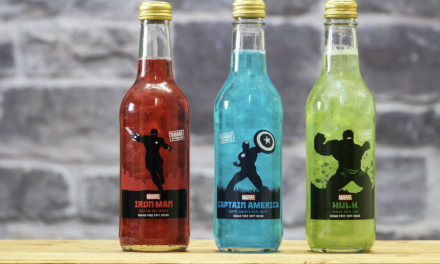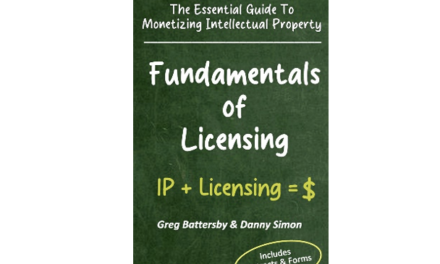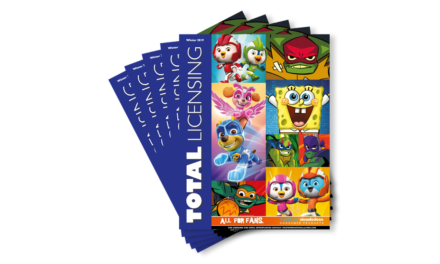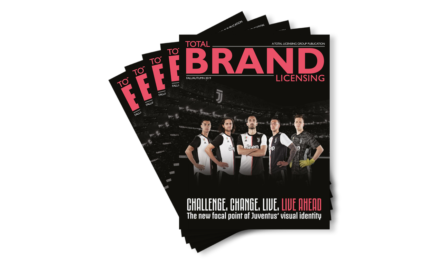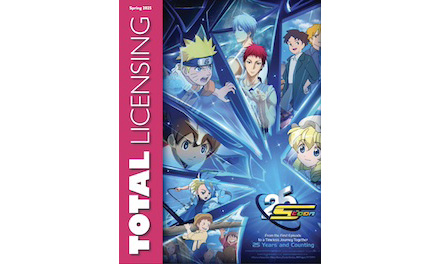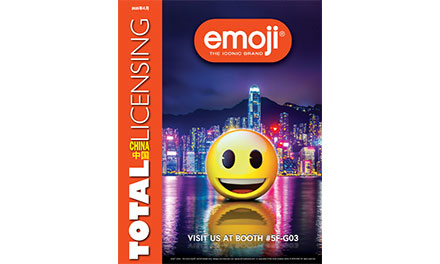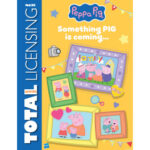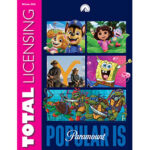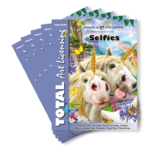
Brands Missing out on the Power of fictional characters in advertising
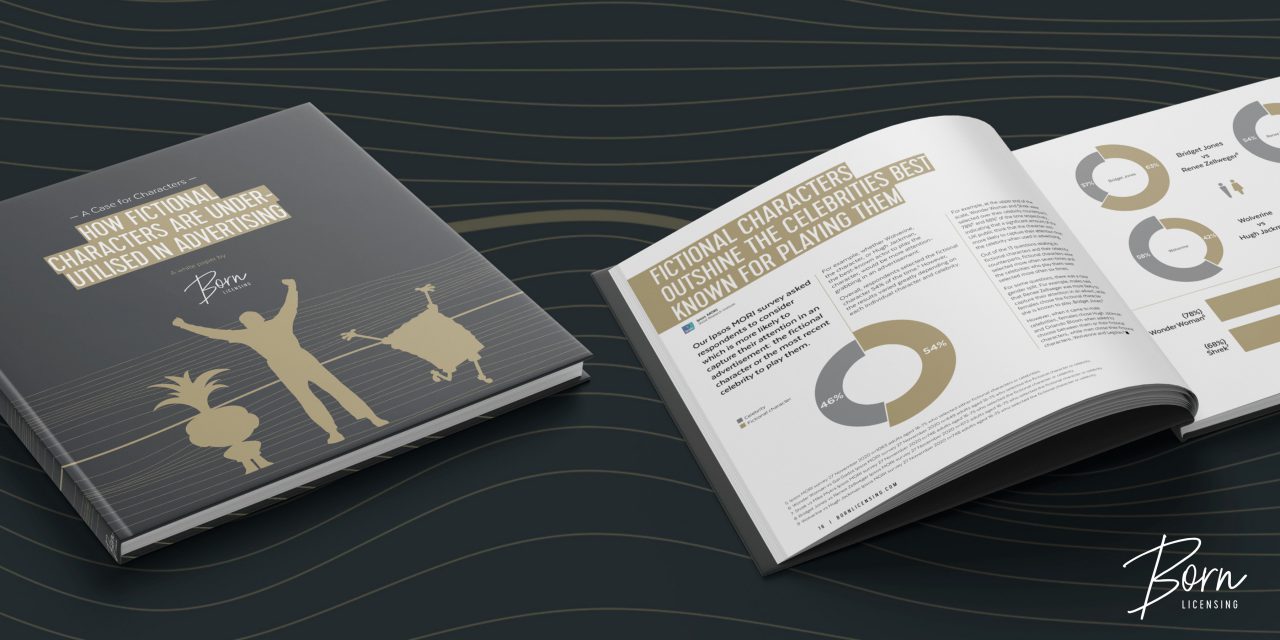
78% of the UK public say that Wonder Woman would be more likely to capture their attention in an advertisement than her celebrity counterpart, Gal Gadot – so why do fictional characters feature in just 1.1% of UK advertising?
In a white paper set to be released on March 8th, Born Licensing, a UK firm specialising in licensing entertainment IP for use in advertising campaigns, address the under-utilisation of fictional characters in advertising and how powerful they can be for creating effective brand campaigns. This is the first research of its kind into the status and effectiveness of fictional characters in advertising and how advertising and marketing professionals can harness the power of characters more fully.
A Case For Characters: How Fictional Characters Are Under-Utilised In Advertising
In the UK, you are 13.4 times more likely to see a celebrity, sports star or musician in an advert than a fictional character.
This white paper, which will be available to download from Born Licensing’s website from Monday 8th March 2021, will help advertising professionals, creatives and brands better understand the power of utilising fictional characters in advertising. The paper addresses why we saw fictional characters in just 1.1% of UK advertising in 2018-2020, despite 38% of the UK public stating that they ‘most like’ to see fictional characters in advertising, compared to 22% favouring celebrities, 22% favouring musicians and 18% favouring sports stars.
The paper also highlights how using fictional characters, rather than celebrities, musicians and sports stars, in advertising is more likely to capture attention, make viewers remember the advert the next day, make people like a brand, and make the public want to tell friends and family or share on social media.
David Born (Founder & Director) and Amber Cheung (Senior Licensing Executive) from Born Licensing co-authored this paper and have worked on a range of high-profile advertising campaigns which utilised fictional characters, including Direct Line’s ‘We’re On It’ campaign featuring Donatello from Teenage Mutant Ninja Turtles, Robocop and Bumblebee from Transformers and MoneySuperMarket’s ‘Epic’ campaigns featuring Masters of the Universe characters, Skeletor and He-Man.
Born Licensing conducted extensive research to create the paper, commissioning Ipsos MORI to help understand the public’s perception of fictional characters in advertising and conducting their own qualitative and quantitative research within the advertising industry. The white paper covers three core areas:
- How fictional characters are under-utilised in advertising
- Why fictional characters are under-utilised in advertising
- What needs to change in order to see advertisers utilise fictional characters more.
Each area includes insight into a range of topics, including:
- How do fictional characters stack up against brand characters?
- What does Google Trends tell us about comparing fictional characters to celebrities?
- Demand vs. reality as it relates to fictional characters, celebrities, sports stars and musicians being utilised in advertising
- Are fictional characters less risky for brands than celebrities, sports stars and musicians?
The results of the research conclusively demonstrate the public appetite for seeing fictional characters in advertising and begins to address the barriers preventing advertising professionals from producing work featuring fictional characters.
David Born, Director & Founder of Born Licensing, says:
“I’ve been lucky enough to work with fictional characters for almost 15 years. Time and time again I’ve witnessed the power they can bring to content, merchandise and advertising. This report demonstrates the extent in which characters are untapped in the advertising space, and the huge opportunity that is available.
Our mission is to see fictional characters in advertising as often as celebrities, musicians and sports stars. Although we’ve had the pleasure of working on some brilliant campaigns featuring fictional characters, our research shows that there is a significant demand still not being met.”
Amber Cheung, Senior Licensing Executive at Born Licensing, says:
“This paper is the first of its kind and we hope it brings real change to how advertising agencies and brands approach working with fictional characters. The effectiveness of characters in advertising is undeniable and this paper is a crucial first step to encouraging brands, advertisers and creatives to fully harness their power.”
The white paper will be available to download from Born Licensing’s website from Monday 8th March 2021.
About Born Licensing
Born Licensing are the only agency in the world focused solely on the licensing of entertainment-based IP for the purposes of advertising and marketing. As a team, Born Licensing have a deep understanding of how the licensing industry works and how advertising agencies and brands can license their intellectual property.
Working with some of the world’s best creative agencies, including BBDO, DDB, McCann, Saatchi & Saatchi and VCCP, Born Licensing provide the licensing expertise needed to bring their extraordinary campaigns to life.
Born Licensing also represent many of the biggest entertainment Rights Holders, including MGM, ViacomCBS (Nickelodeon), Hasbro, Mattel, Sesame Workshop, Tetris, Sanrio, Universal Studios and Cloudco Entertainment.
Born Licensing was recently listed as the 58th fastest growing company in Europe, the 15th fastest growing company in the UK and the 2nd fastest growing in the advertising category by The Financial Times:
For more information, visit the Born Licensing website.


